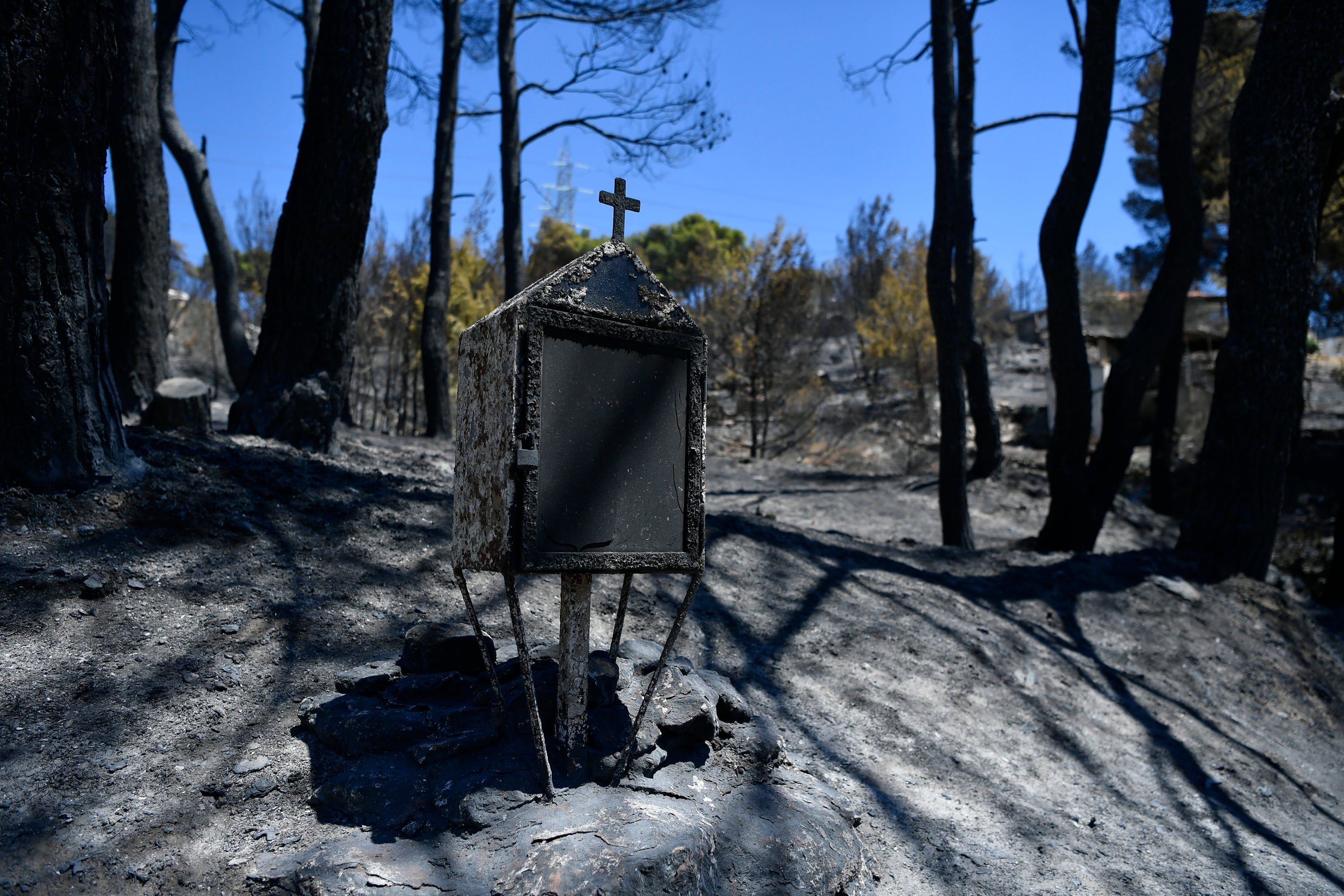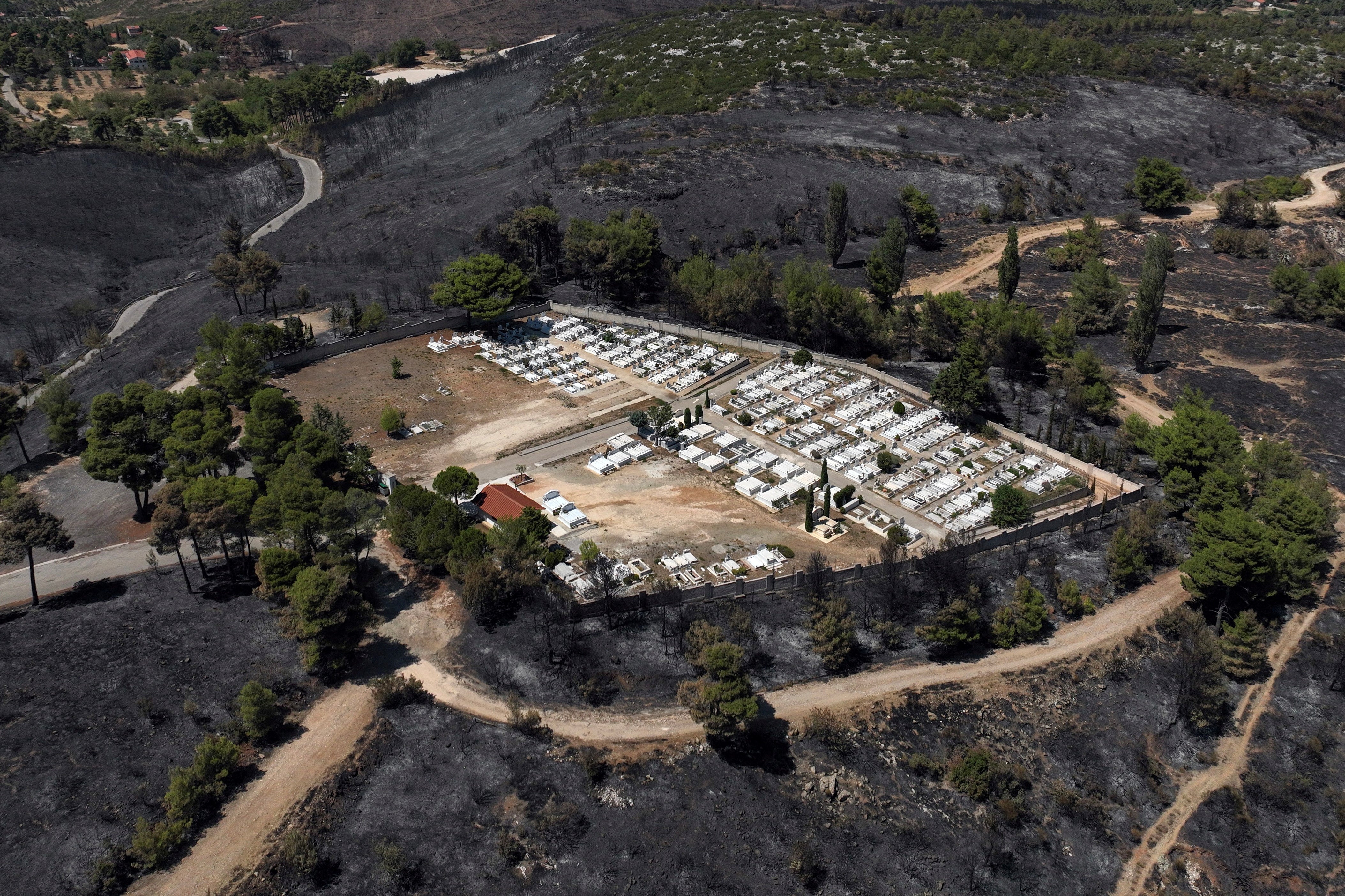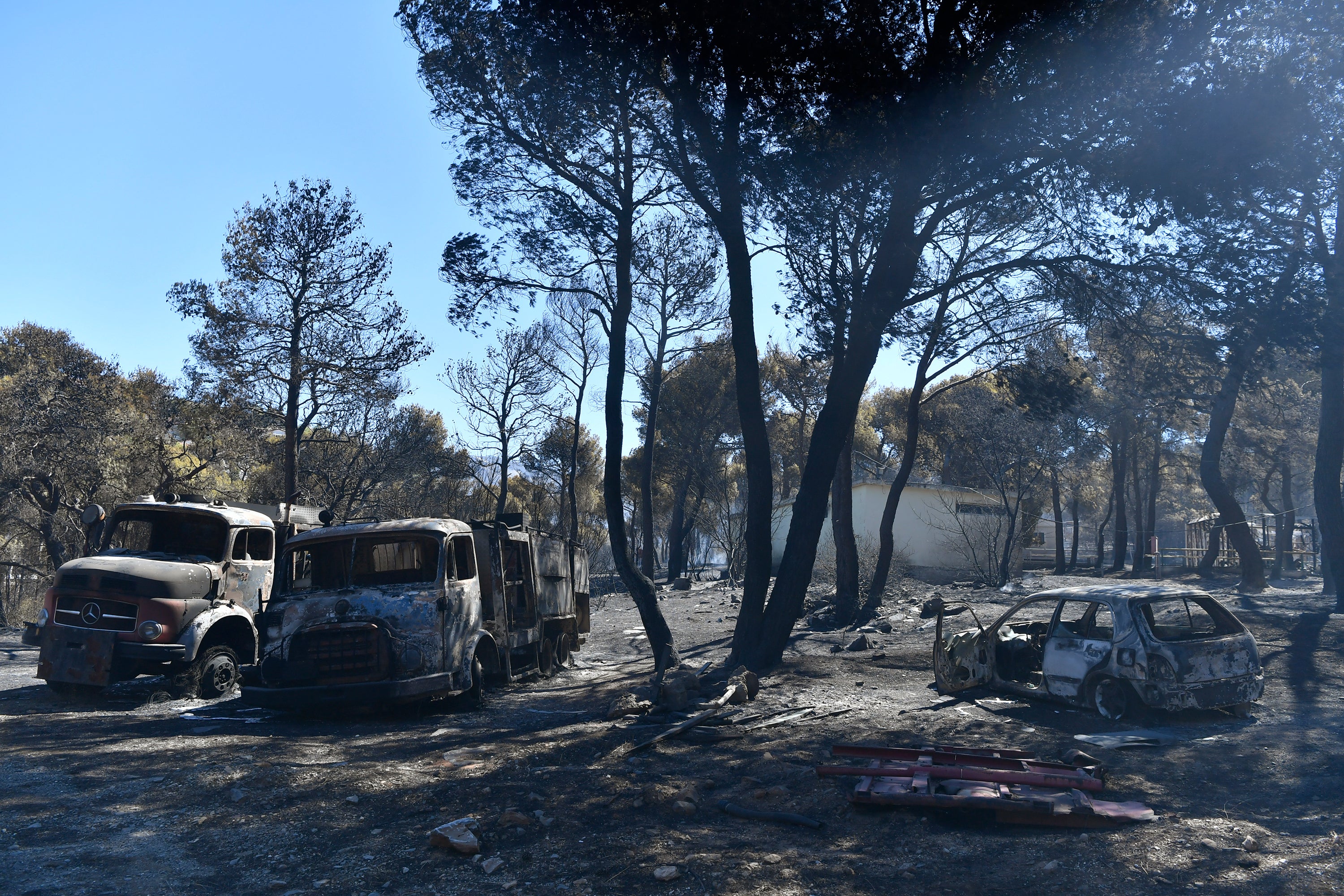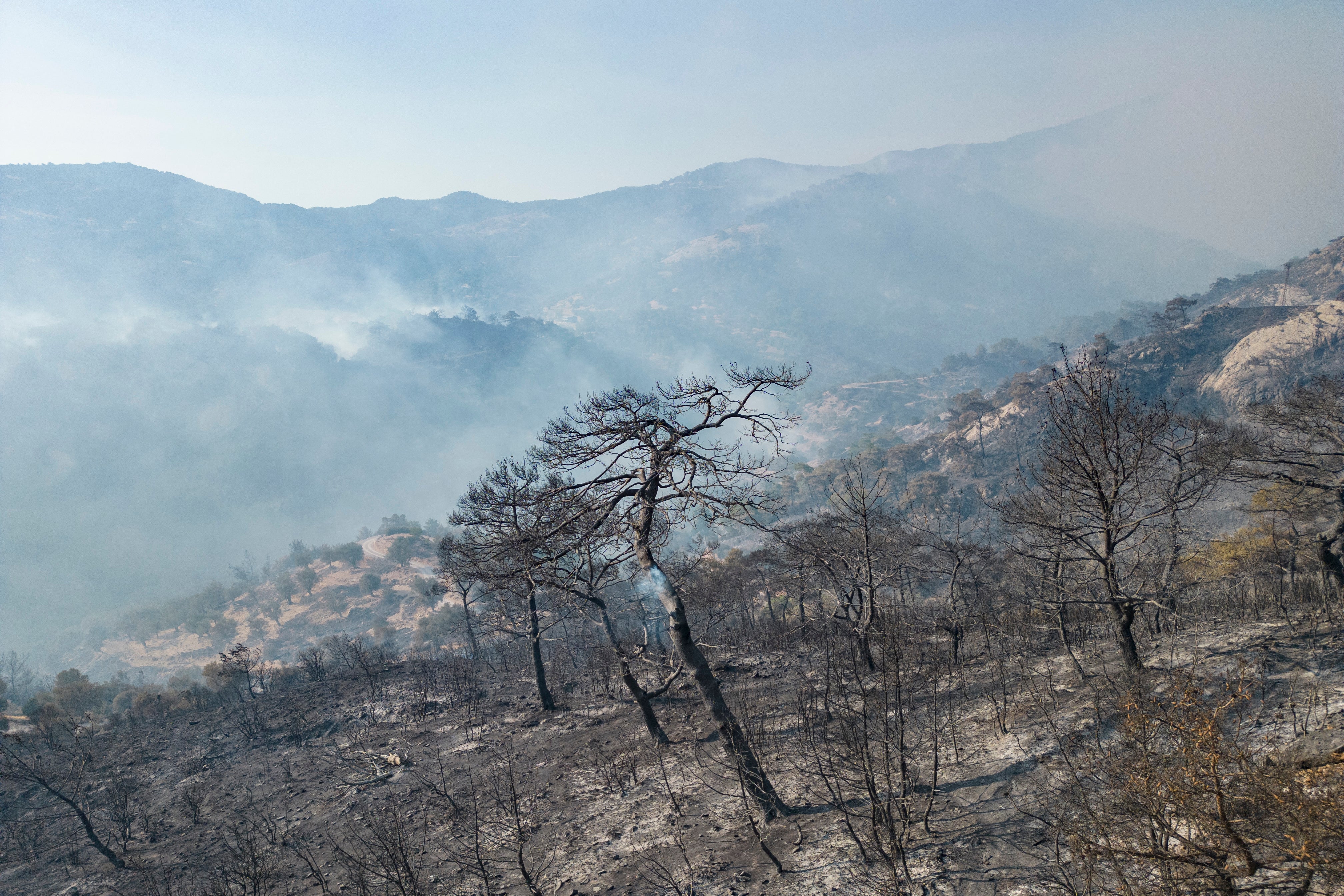Suspected cause of deadly wildfires that threatened Athens identified
Fires have now ravaged neighbouring Turkey

Investigators have said what they believe is the cause of huge deadly wildfires that destroyed homes and land near Athens last week.
Authorities said they suspect a faulty power caused the blaze that killed one woman and torched 10,000 hectares near Athens, covering a total area about the size of Paris.
The blaze, which began on August 11, broke out from a forest off Varnavas town near the ancient town of Marathon, 35 km (22 miles) from the capital and into Athens’ northern suburbs.
Authorities have questioned Varnavas residents as part of their investigation into what caused the blaze. A 76-year old man said a wooden electricity pillar outside his home, which had a loose cable fastened to it with a hanger, could have triggered it, officials said.
That scenario was the leading one in the probe, which should be concluded over the coming months, an official with knowledge of the investigation said. Arson was also being considered.

A fire brigade official who declined to be named said an area close to the electricity pole had been determined as the starting point of the blaze.
Wildfires have been a common feature of Greek summers for years, with many attributed to voluntary or involuntary arson, short-circuits or occasionally, to natural causes. The country registered more than 8,000 forest fires in 2023.
In recent years, the risk of such fires has been raised by climate change, which has brought hotter weather and less rain.
A prosecutor has deployed engineers to look into the latest wildfire’s cause.
Greece‘s power network operator HEDNO, said it had found no evidence of a malfunction.
“We have no indication that anything wrong such as a short-circuit happened,” an official at HEDNO told Reuters adding that only the relevant authorities were responsible for determining the fire’s cause.
Local media cited residents who had heard explosions before the fire broke out. Others said there were initially two fires.
Meanwhile, in neighbouring Turkey, firefighters are tackling blazes after dry, hot and windy weather conditions led to a series of fires, including one that threatened First World War memorials and graves at the Gallipoli battle site.

At the peninsula where an Allied landing was beaten back by Ottoman troops in a year-long campaign in 1915, the flames reached Canterbury Cemetery, where soldiers from New Zealand are interred.
Images of the site in north-west Turkey showed soot-blackened gravestones in a scorched garden looking out over the Aegean Sea.

The fire was brought under control by Friday.
Officials said it was started by a spark from electricity lines that spread through forested areas.
Elsewhere, however, the continuous work of emergency crews stretched over days and nights.
On the west coast, a fire threatened houses on the outskirts of Izmir, Turkey’s third largest city, where a blaze broke out in woods on Thursday night.
Residents fled their homes as ash fell around them.
Turkey has mobilised dozens of aircraft, hundreds of vehicles and thousands of personnel to fight the fires.
In June, a fire spread through settlements in south-east Turkey, killing 11 people and leaving dozens of others requiring medical treatment.
Subscribe to Independent Premium to bookmark this article
Want to bookmark your favourite articles and stories to read or reference later? Start your Independent Premium subscription today.

Join our commenting forum
Join thought-provoking conversations, follow other Independent readers and see their replies
Comments